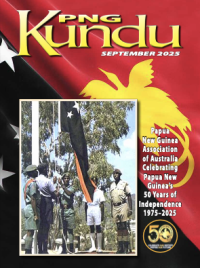13. What “Trusteeship” means, Part two
Paul Quinlivan’s Snapshots
God alone knows how often Monte hammered home the ‘Expulsion of Undesirables’ warning before I arrived in TPNG but he returned to it (so as to make sure that it was not applied) in The Queen against Francis Terence Murphy (Rabaul, 3 March 1952) but my report of that case is too long to be given here. He returned to it in The Queen against Reverend Johannes de Roo (Lorengau, 13 March 1952).
De Roo was in charge of Loniu Protestant Mission and, with Hilun, a Manus man, he was charged with stealing an oil drum and 25 gallons of oil from ComWorks. He claimed that he was justified in taking it because “everybody was doing it” and this meant that Hilun’s case was separated and the court was compelled, by section 22 of the Criminal Code, to hear de Roo’s “bona fide claim of right”. When he was unsuccessful in this he claimed a second “claim of right” in that ComWorks owed him money and this was the only way he could get the debt repaid. He was unsuccessful again and was convicted and sentenced to two months gaol.
The Judge then spoke about TPNG being a Trusteeship Territory, as he had in Jameson’s Case, and then said, “You failed, signally, in your duty in regard to Hilun but there is a substantial difference between failure to be a good example and ‘taking a person down because he is a Native’. Moreover, I have taken account of this when imposing a light sentence on Hilun. I have decided that, as far as this Court is concerned and I am, of course, speaking purely in so far as this Court’s jurisdiction is concerned, I should order that your sentence be served at Rabaul, rather than draw the attention of the Administrator in Council to the fact that you have been convicted and can be deported under the Expulsion of Undesirables Ordinance 1935.”


